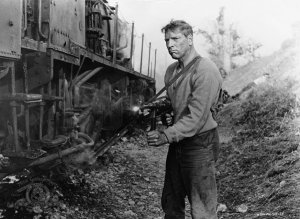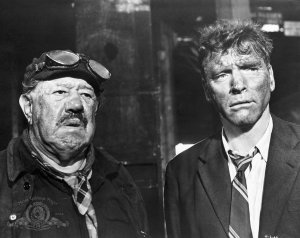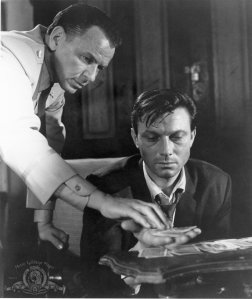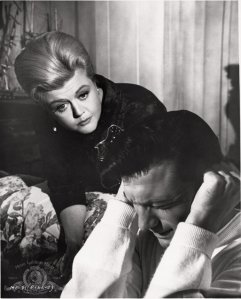Starring: Rock Hudson, Salome Jens
Director: John Frankenheimer
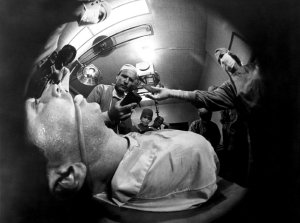 Seconds views very much like a companion piece to The Manchurian Candidate. One offers a nightmare vision of American public life, the other paints a picture of the American psyche cracking up – Kafka meets Freud meets The Twilight Zone.
Seconds views very much like a companion piece to The Manchurian Candidate. One offers a nightmare vision of American public life, the other paints a picture of the American psyche cracking up – Kafka meets Freud meets The Twilight Zone.
Based on a novel by David Ely, it tells of an ageing banker who avails himself of the services of a shadowy corporation offering a fake death, rejuvenating plastic surgery and a fresh identity. Emerging from the bandages as ruggedly handsome Rock Hudson, he starts a new life as a painter in Malibu, acquires a tea-leaf reading girlfriend and hangs out with proto-hippies in Santa Barbara (one of the film’s set-pieces is an orgiastic wine-pressing ceremony, complete with daring full frontal nudity). But he brings his old neuroses with him and is soon pickling his new body in alcohol.
As a gay man who made a living playing heterosexual heartthrobs, Hudson must have known a thing or two about false identities, and this shows in the intensity of his performance. Likewise, cinematographer James Wong Howe shoots the film like a man possessed, employing a myriad of eerie techniques such as mounting a camera on Hudson with a harness to give the impression that the world is moving giddily around him (an effect Scorsese was to borrow for Mean Streets).
The screenplay by Lewis John Carlino has nagging flaws – the opening section is disproportionately long, while Hudson’s fall seems a bit too precipitous – but Seconds is a fascinating film which tightens its grip on you the more you think about it. It’s packed with unforgettable images (that first glimpse of Hudson, his new face covered in stitches), the supporting cast are razor sharp (Murray Hamilton is blisteringly good in a brief cameo as another of the “reborns”), there are some decent twists in the home stretch and the ending is absolutely chilling. Don’t wait until your next life to pick up a copy. 8/10
TRANSFER
A very nice transfer, with a little grain (as you would expect) in some of the set-ups that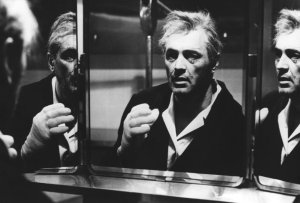 use available light, but otherwise very crisp, with detailed skin tones, dramatic high-key shots and a sparkling, windblown quality to the beach scenes. Upon its original release, the wine-pressing scene was shown only in a cut form, but here it is restored. 8/10
use available light, but otherwise very crisp, with detailed skin tones, dramatic high-key shots and a sparkling, windblown quality to the beach scenes. Upon its original release, the wine-pressing scene was shown only in a cut form, but here it is restored. 8/10
EXTRAS
Very lively, enjoyable 20 min interview with Kim Newman, who talks persuasively about the film’s merits and surprisingly widespread influence. ~ Excellent audio commentary with John Frankenheimer, crammed with info. He pays tribute to James Wong Howe’s contribution, describes shooting what was a real-life nudist wine festival (Frankenheimer ended up in the vat with his trunks round his ankles) and reveals that Hudson’s Malibu beach home in the movie was actually the director’s own house. 8/10

